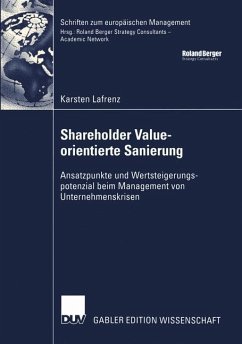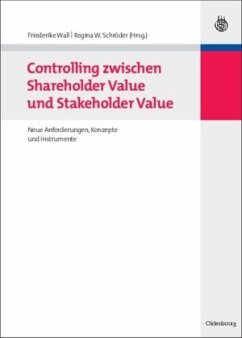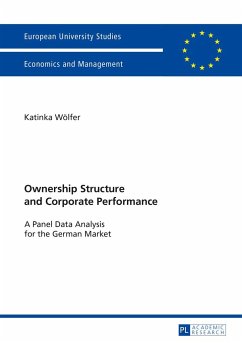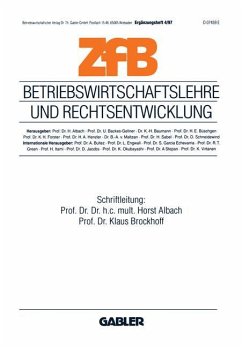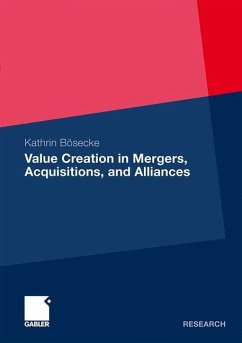
Value Creation in Mergers, Acquisitions, and Alliances

PAYBACK Punkte
0 °P sammeln!
About ten years ago, the network-oriented markets for electricity and natural gas were opened. The formerly vertically integrated companies were partly disintegrated, the regional or local monopolies were removed, and customers received the possibility to choose their supplier as in other industries. This led to fundamental changes in the market structure. In an industry with relatively low growth of demand, companies were looking for additional growth and at the same time reacted to competitive pressures. Often mergers, acquisitions, and alliances were the strategic answer. The period of begi...
About ten years ago, the network-oriented markets for electricity and natural gas were opened. The formerly vertically integrated companies were partly disintegrated, the regional or local monopolies were removed, and customers received the possibility to choose their supplier as in other industries. This led to fundamental changes in the market structure. In an industry with relatively low growth of demand, companies were looking for additional growth and at the same time reacted to competitive pressures. Often mergers, acquisitions, and alliances were the strategic answer. The period of beginning liberalisation is, therefore, also a period of intranational and international attempts to join forces in order to prepare for competition. How successful are such attempts? In this book, Kathrin Bösecke gives the answer based on an empirical study using a large data set and identifies success factors for business combinations in the utility industry. This study is of great interest for economists studying the impacts of business strategies as well as for practioners in finance and the utility industry observing the market development in the utility sector. Prof. Dr. Wolfgang Pfaffenberger Preface Doing research can be stressful and frustrating, but when it yields exciting results it can also be very rewarding. There were a number of people, during the course of this research, who gave advice or offered encouragement and good cheer when needed.





